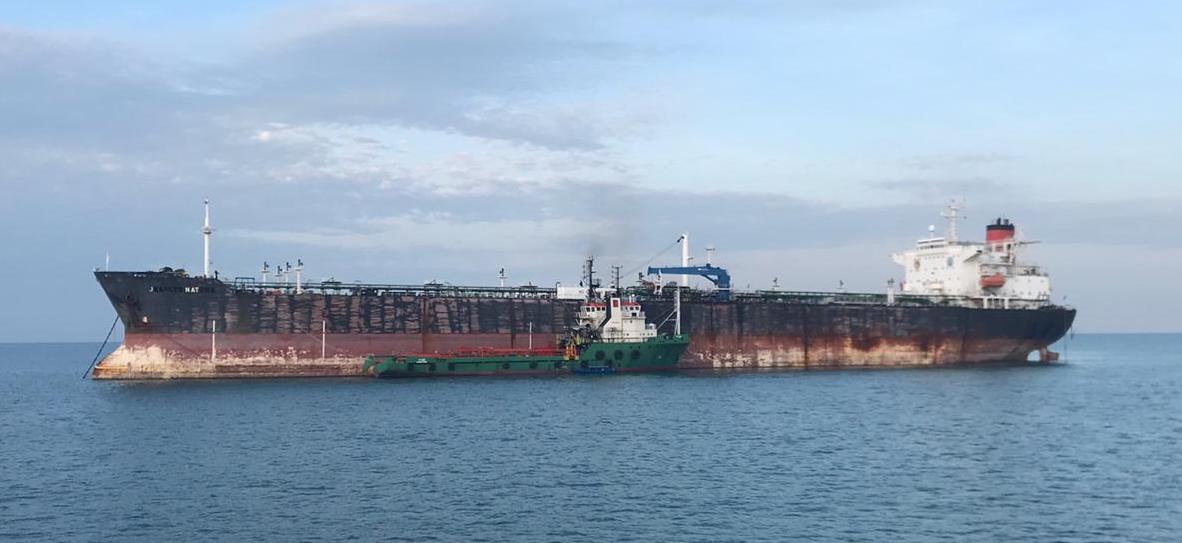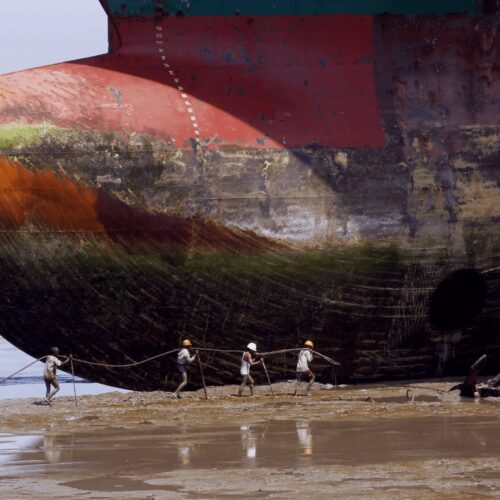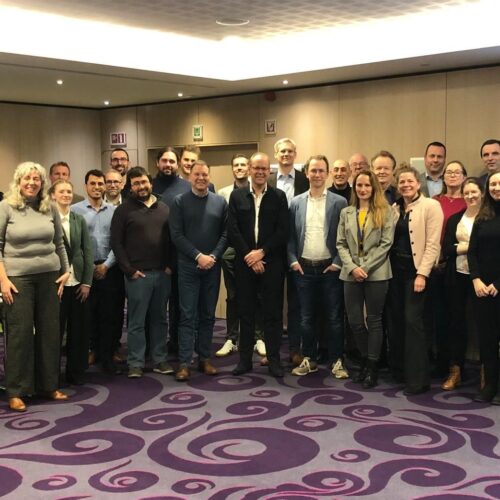Press Release – NGOs urge Bangladesh authorities to halt the import of a highly toxic offshore unit that illegally departed from Indonesia
The Floating Storage and Offloading (FSO) tanker J. NAT is currently being towed towards the infamous shipbreaking beach of Chattogram. The vessel, formerly known as JESSLYN NATUNA, operated in the Natuna gas field and was owned by Indonesian company Global Niaga Bersama PT. It was recently sold to cash buyer SOMAP International, who re-named it to J. NAT and re-flagged it to Palau. SOMAP is a company specialised in trading end-of-life vessels to the beaching yards.
The FSO J. NAT left Indonesian waters on 18 April even though local activists warned Indonesian authorities about the toxicity of the vessel. Official documents indicate that the tanker has more than 1500 tons of hazardous waste from the oil extraction process onboard, including 1000 tons of slop oil, 500 tons of oily water and 60 tons of sludge oil. Lab results on a sludge sample shared with the Platform reveal mercury levels of 395mg/kg. The J. NAT likely also contains high amounts of mercury in its structures, as well as in ballast waters.
The NGO Shipbreaking Platform, Basel Action Network (BAN), European Environmental Bureau (EEB), IPEN, Nexus3 Foundation and Zero Mercury Working Group have now warned Bangladesh of the breach of international waste laws [1], and urged authorities to halt the import of the contaminated ship. Ignoring illegal acts risks exposing the workers to severe harm and polluting the environment of Bangladesh.


Given the likely high concentrations of mercury in the steel hull of the FSO J. NAT and the blow torch method used to cut vessels, there is a high risk of inhalation of mercury vapour. Mercury is an extremely toxic metal. Exposure to mercury, even at low levels, has been linked to central nervous system damage, kidney and liver impairment, reproductive and developmental disorders, defects in foetuses and learning deficits.
In a recent court judgment on the illegal import of another oil and gas unit – Maersk’s FPSO NORTH SEA PRODUCER – the Bangladesh Supreme Court denounced the fraudulent documents claiming that the vessel was toxic-free when it in fact was contaminated by radioactive substances. The Court called for full transparency on the hazardous materials onboard end-of-life vessels imported to Bangladesh.

The Platform has documented drill ships, floating platforms, jack-up rigs and FPSOs/FSOs scrapped in recent years. Many were beached in South Asia, including units owned by Diamond Offshore, Maersk, Odebrecht, SAIPEM, SBM Offshore and Transocean. The J. NAT case resembles the recent export from Indonesia to the Indian beach of Alang of SBM’s mercury-laden tanker YETAGUN, which was investigated by Dutch media Zembla.

NOTE
[1] Bangladesh and Indonesia are both signatories to the Basel Convention on the Control of Transboundary Movements of Hazardous Waste and their Disposal. Under this Convention, the trade in mercury and several other hazardous wastes that are likely contained within the structure of the FSO J. NAT is strictly controlled. The import of the vessel requires that there is prior informed consent (PIC) between Indonesian and Bangladeshi authorities and that the declarations of hazardous materials left on board must reflect actual conditions. Moreover, the Convention requires that no export be made if there is reason to believe that the recycling or waste management facilities employed for the materials will not constitute environmentally sound management under the Convention. The shipbreaking yards that operate on the tidal beach of Chattogram are well-known for their dangerous and polluting practices.
Indonesia is also a party to the Minamata Convention, while Bangladesh has not ratified the treaty. Although the oil and gas sector is exempted from the international agreement in terms of their emissions management, countries must identify the potential sources of mercury emissions and releases within their own territory. Measures should be taken when high mercury sources have been identified.
UPDATE: This post was updated on 1 May 2020 to specify the levels of mercury contamination in the sludge of the FSO J. NAT according to lab results shared with the Platform.
Related news

Platform News – UN Special Rapporteur concerned about German shipbreaking practices
In a written submission to the German Government, UN Special Rapporteur Baskut Tuncak has expressed serious concerns related to the substandard shipbreaking practices of German ship owners,… Read More

Where ships go to die – Winner of the Public Eye Investigation Award
Decommissioned deep-sea vessels are floating toxic waste. Their disposal is laborious and costly, and regarded as a menace by those who want to protect both the workers… Read More

Platform News – CirclesOfLife leads the charge toward sustainable shipyard practices
Comprising members from shipyards, industry associations, civil society organizations, academia, and classification societies, CirclesOfLife is a consortium committed to driving progress toward circular, zero-impact shipping through collaborative efforts.
... Read More
Platform News – Violence reaches new level: shipbreaking yard’s private security personnel fire shots and injure seven people
In the morning of 28 March, shipbreaking worker Sumon was killed on a private road inside Kabir Steel yard located North of Bangladesh’s major port city, Chittagong…. Read More

Press Release – Worst corporate dumpers asked to clean up their acts
Targeting sustainability and fleet managers, the NGO Shipbreaking Platform calls for the adoption of responsible ship recycling policies in letters sent to shipping companies standing out for… Read More

Platform News – No more dead workers!
The Berge Stahl, one of the world’s largest iron ore bulkers, made its last visit at the Port of Rotterdam last week. The NGO Shipbreaking Platform… Read More

Platform News – Global ban on exporting hazardous waste to developing countries becomes law
The Basel Ban Amendment, adopted by the Parties to the Basel Convention in 1995, became international law on December 5.
... Read More
Platform News – Prison sentence for attempted illegal export of the Harrier reveals reckless actions by all parties involved
The judgment, now available in English, provides shocking insights into the role played by all parties involved in the sale and transport of the end-of-life vessel.
... Read More